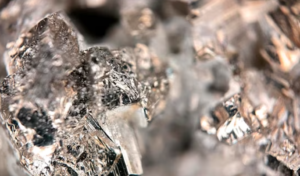#Cobalt #DLA #DefenseStockpiles #China #ElectricVehicles #CriticalMinerals #USDefense #CobaltMining
In recent developments, the United States has explored the possibility of acquiring cobalt for its defense stockpiles, a move aimed at diminishing its reliance on China. China currently leads in processing cobalt, an essential component in manufacturing missiles, aerospace parts, and various systems critical to national defense, such as communication, radar, and guidance systems. Additionally, cobalt plays a significant role in the production of batteries for electric vehicles, a central aspect of the global shift towards cleaner energy sources.
Despite expectations, the Defense Logistics Agency (DLA) opted not to include cobalt in its stockpiling plans for the fiscal year running from October 2023 to September 2024. This decision came as a surprise to many, especially considering the notable 60% decrease in cobalt prices to around $16 a pound since May 2022, which some anticipated would encourage stockpiling efforts.
DLA spokesperson Joe Yoswa elucidated that the agency conducts biennial assessments of critical material supply chains to ascertain the requirements for the National Defense Stockpiles (NDS). According to Yoswa, the current evaluation did not identify cobalt as a vulnerability necessitating stockpiling. He further clarified that the NDS is designed explicitly for defense purposes, not as an economic reserve, implying that the current market price of cobalt does not justify its acquisition.
The decision against cobalt stockpiling has also had repercussions on the industry, exemplified by the suspension of construction on the Idaho cobalt operations by Jervois Global. This project was poised to become the sole primary cobalt mine in the United States, with an expected annual output of 2,000 metric tons.
Adding to the complexity is the pressure from Congress, with a letter sent in September 2022 urging the Department of Defense to prioritize the acquisition of domestically refined cobalt to reduce the heavy dependence on foreign sources, particularly from China. The letter highlighted the inadequacy of the U.S.’s current cobalt reserves within the NDS, underscoring a significant gap between the Cold War era stockpiles and today’s significantly reduced levels.
This initiative reflects a broader concern over America’s critical mineral supply chain and its implications for national security. Although the immediate path forward remains uncertain, the dialogue surrounding cobalt stockpiling underscores the evolving landscape of defense readiness in the face of global material and geopolitical challenges.







Comments are closed.